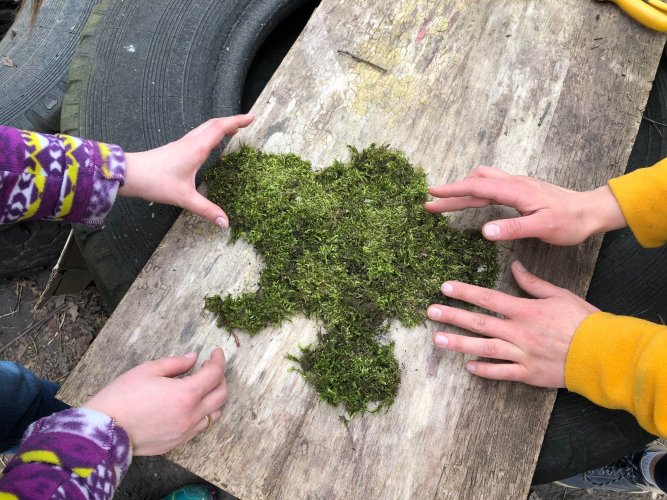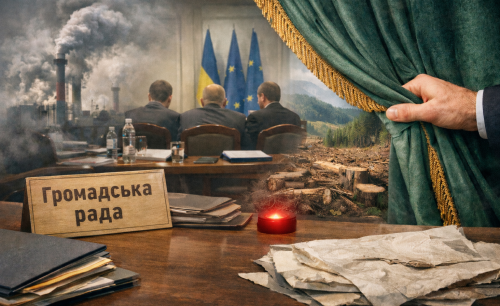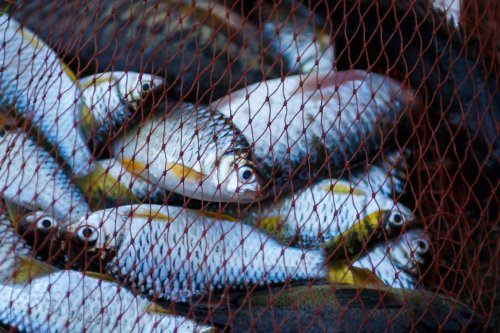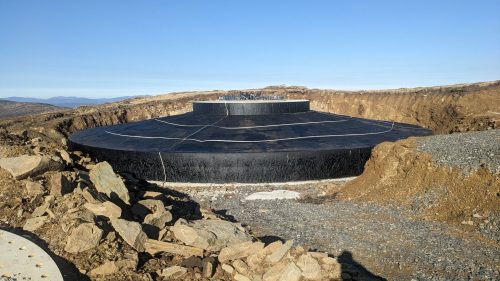In Ukraine, despite the war, eco-activists in 2022 did not give up the fight for the preservation of nature. They achieved the creation of new nature reserves, promoted the promotion of reusable items and waste sorting, cleaned lakes and forests, rescued animals from shelling, etc.
Read more about the eco-successes of Ukrainians at home and in the world in 2022 on EcoPolitic.
Garbage sorting
In Vinnytsia, eco-activists launched a mobile phone application "Ecomobile", which will help reduce the amount of waste in landfills and green the city. The public organization "Eco-Service" will plant trees twice a year with the money received from the delivery of secondary raw materials.
Despite the war, mobile hazardous waste collection points (ecobuses) continued to accept hazardous waste free of charge from the population in Poltava, Khmelnytskyi, Lviv.
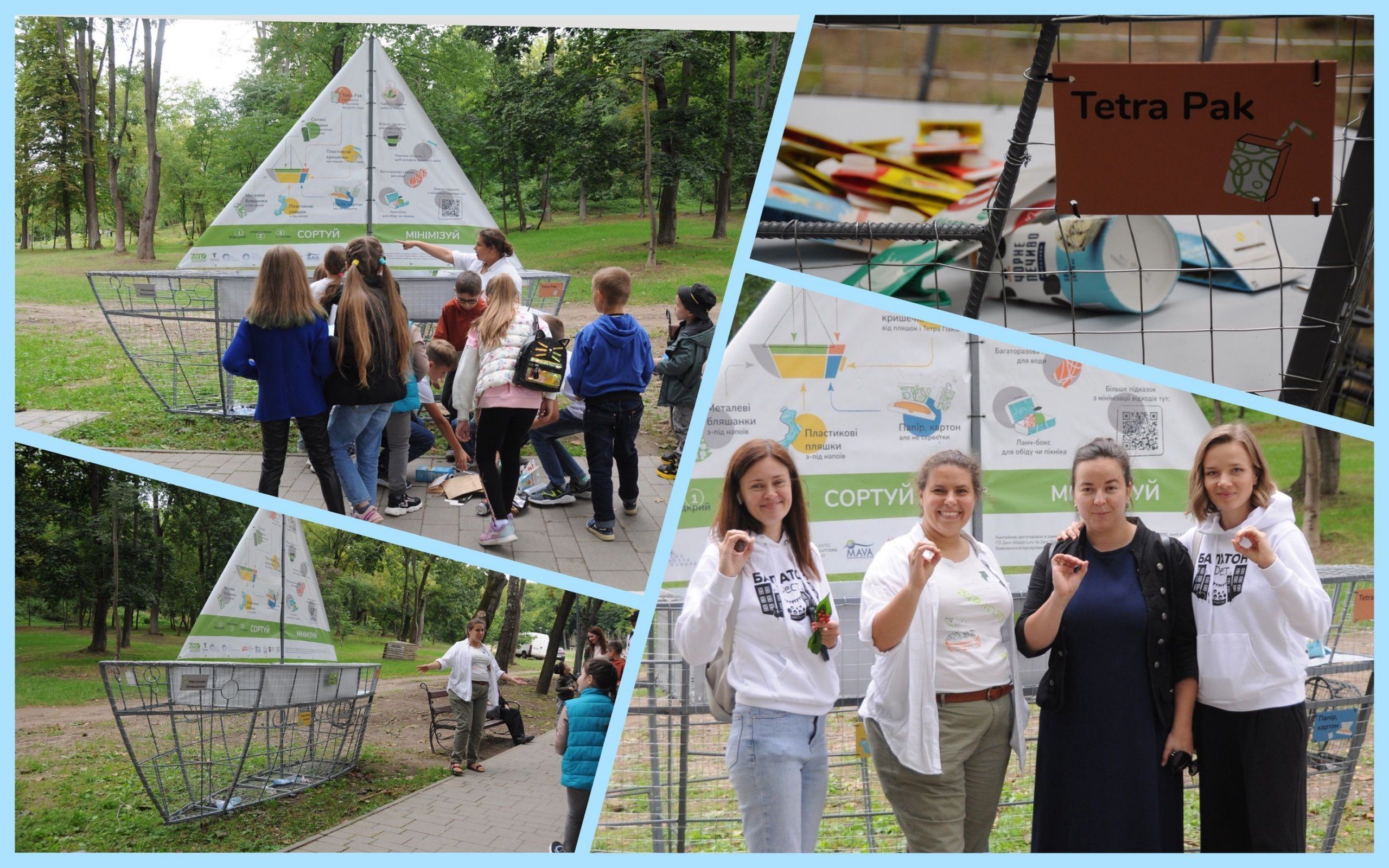
Sorting ship in Lviv for 6 types of waste
Eco-activists of the Kharkiv region opened a public composter in the city of Lubotyn and are preparing to open the center of overuse. The reuse zone is already successfully functioning in Kharkiv in the eco-hub of the public organization Kharkiv Zero Waste. In addition, in ecohub a futbank and a sorting station are functioning.
In addition, waste sorting stations across the country resumed operations as soon as they were able to restore supply chains.
Landscaping and cleaning
With the beginning of the full-scale invasion, many Ukrainians had to leave their homes and seek refuge in safer regions or abroad. To thank for the shelter, people planted trees and cleaned parks of garbage.

Immigrants landed in the Dnipro paulownia trees in the park "Novokodatskyi"
Forced migrants together with local residents held eco-actions. In particular in the town of Berehove, in Transcarpathia, they cleaned the territory of the Verke canal, a national park Synevir, the coast of a lake in the Czech Republic, etc. Local residents of Zhytomyr, Kyiv and other communities also held Saturday celebrations.
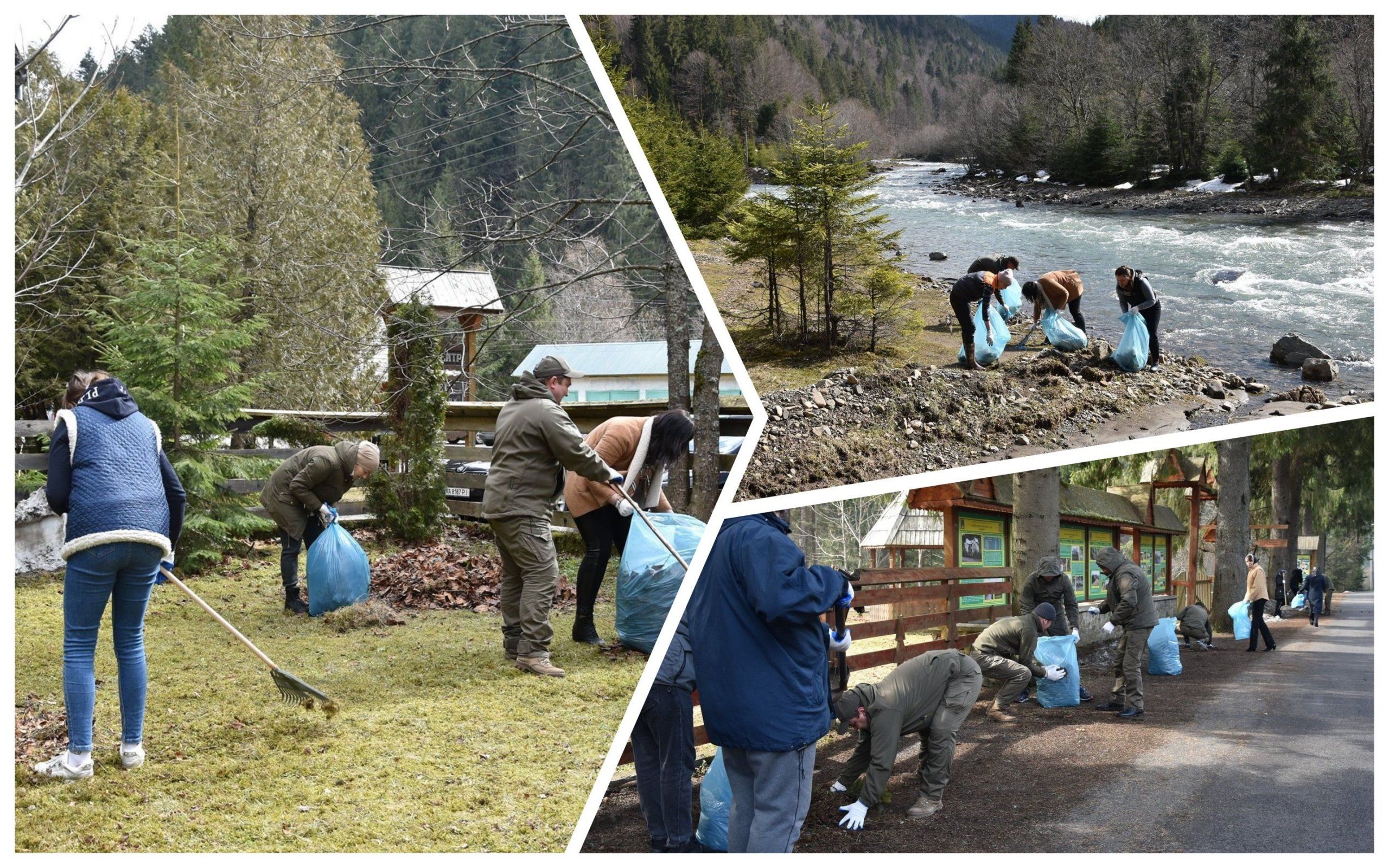
Settlers and workers of the Synevyr National Park collected 70 bags of garbage
In addition, on September 17, 74,921 participants in 24 regions of Ukraine, as well as abroad joined World cleaning day. The slogan of the day was the phrase "Let the sky be peaceful and Ukraine clean!". The participants collected about 2184 tons of garbage, of which almost 70 tons were sent for processing. And the funds received for secondary raw materials were transferred by the volunteers to support the Armed Forces.
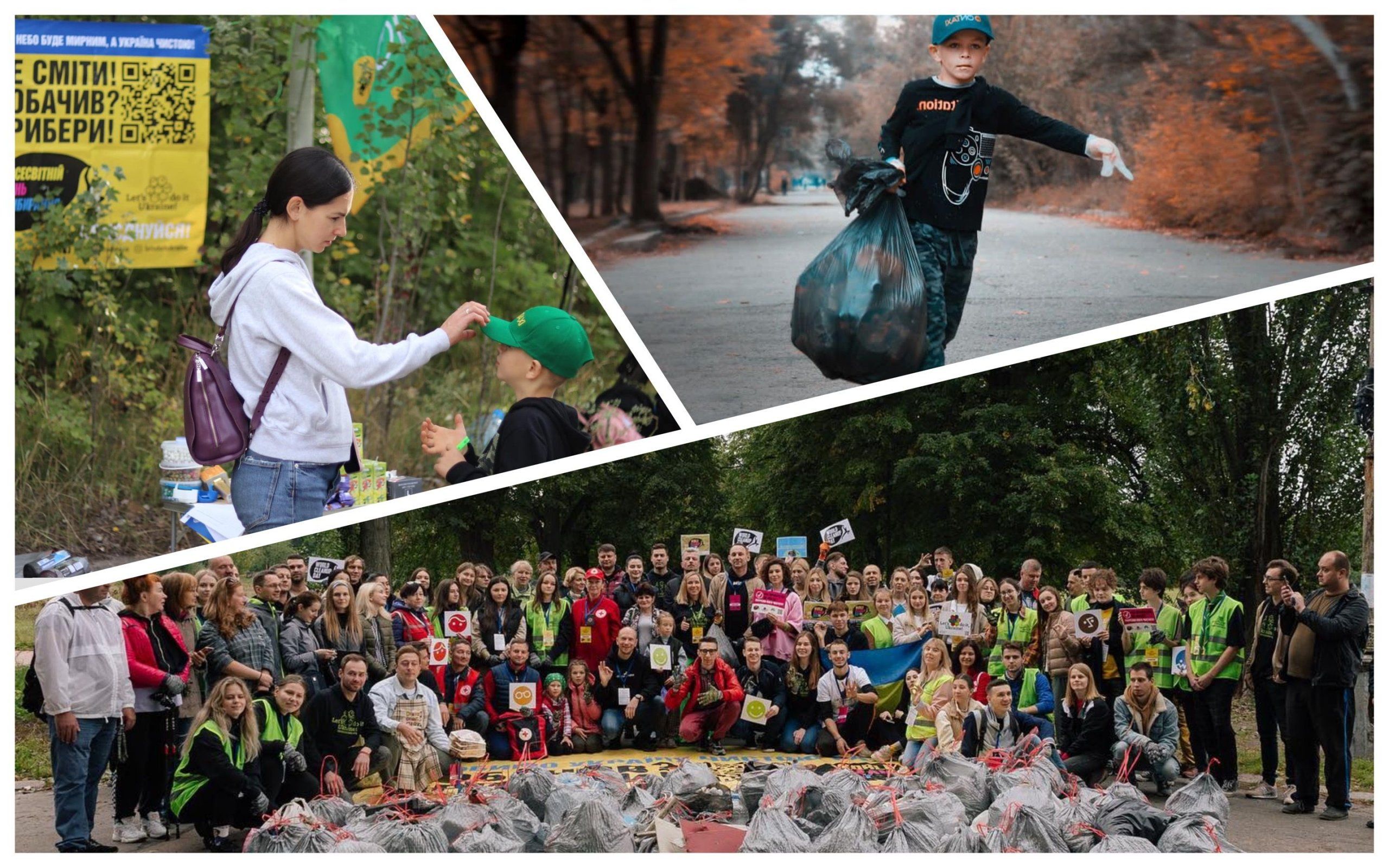
World Cleanup Give 2022
Assistance of the Armed Forces
Eco-activists have come up with how to take care of the environment and help the army at the same time. For example, in the city Shostka, that in Sumy region, initiated an eco-challenge, within the framework of which, for 20 days, waste paper and caps from plastic bottles were accepted from people. With the proceeds, they purchased burlap for the manufacture of camouflage nets and other necessary items for the Armed Forces. Similar actions took place in other cities of Ukraine.
In addition, eco-activists actively participated in the collection and production of trench candles, in particular environmental.
Kyiv eco-activists from the public organization Yapomoga, which feeds homeless animals in exchange for plastic bottles, began to donate 10 kopecks from each bottle collected to assistance of the Armed Forces and the same amount for the United24 program.
International initiatives for environmental protection
Ukrainians joined of the international annual initiative Plastic Free July ("July without plastic"), during which the entire month was spent giving up single-use plastic items, choosing goods without packaging and sharing their experience on social networks.
Ukraine also joined the joint action WorldRiverRun dedicated to World Running Day and World Environment Day. The campaign was designed to draw attention to the preservation of the free flow of rivers.
Testament of nature
Public figure Roman Ratushny, who fought for the creation of the landscape reserve "Protasiv Yar" in Kyiv, died at the front. However, his life's work was realized, and in July the Kyiv City Council supported the decision of creation of a landscape reserve on both slopes of Protasiv Yar.
In order to honor the memory of the heroes, the authorities of Kyiv decided to create The National Memorial Military Cemetery in the "Lysa Gora" tract, which is an object of the nature reserve fund and historical and cultural heritage. However, ecoactivists criticized such an idea, and called it "one of the biggest speculations on the subject of war." Currently, nature defenders are fighting for its preservation.
Defense of Ukraine
With the beginning of a full-scale invasion a group of eco-activists stood up to protect Ukraine from the enemy.
Also, employees of forestry farms joined the ranks of the Armed Forces, units of ground defense, etc. Ministry of Environmental Protection and natural resources, the State Environmental Inspection and other institutions.
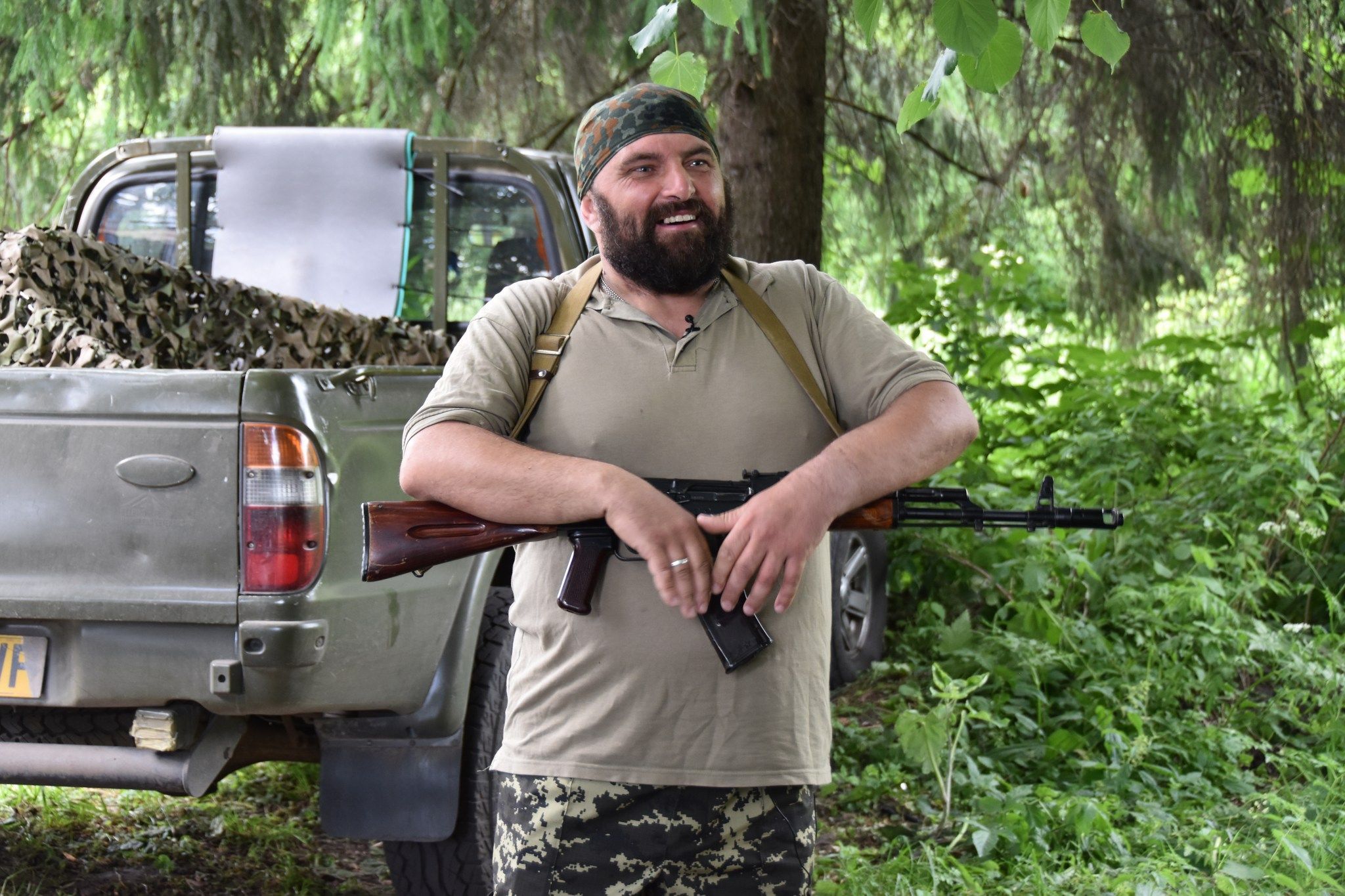
Forester from the Beremytske nature park in Chernihiv region
Struggle with old problems
In addition to the challenges of martial law, Ukrainians also paid attention to traditional environmental problems, which worsened after the full-scale invasion. This is how a petition was created to ban grass mowing in Kyiv, because it harms the environment and requires significant financial costs. In addition, during the period of active mowing of lawns in Ukraine, the fuel crisis continued.
Also, for the first time in Kyiv, a pilot project using granite chips to combat ice was launched. As you know, salt and other chemicals have a negative effect on soil quality and urban plants. In the winter of 2022-2023, paths in the green areas of the city began to be sprinkled with crushed gravel.
In addition, nature conservationists helped detect environmental violations, including illegal cutting of trees, poaching, privatization and plowing of nature reserves, pollution of water bodies with sewage, etc. For example, eco-activists from the "Ukrainian Environmental Protection Group" found an unregistered one the largest waste water discharge into the Buzhky estuary over the past 5 years from the pipeline of treatment facilities.
They also monitored the activities of the Ministry of Environmental Protection and Natural Resources, the State Forestry Agency, and the activities of industry officials. Example, exposed disinformation some forestry officials on the negative impact of old forests on biodiversity and climate change.
Zero Waste
Ecoactivists in Lviv launched a pilot project for popularization reusable diapers. Synthetic diapers make up 2% of the world's garbage and for centuries emit dangerous substances that poison the soil and air. Reusable diapers are widely used in European countries. Parents can either buy them or rent them.

The Zero Waste Lviv project for renting reusable diapers
They also continued to work to reduce the amount of single-use plastic, minimize waste, promote reusable items, sorting, composting, recycling, etc., in particular, during the reception of displaced persons by the city community. Eco-activists offered drinks and food in reusable dishes, collected unnecessary things to make camouflage nets. They also created a separate section "Lviv and waste" in the chatbot "Lviv for you bot", which contains information about the separate collection of organics, city reception points, container sites, waste minimization, replacement of disposable, menstrual and children's hygiene, etc.

Protection of rivers
In Kharkiv the first anniversary of the work of the Trash Killer garbage collector on the Uda River, which during this time cleared the river of more than 30 tons of garbage, was celebrated. It was cleaned of household garbage and plant remains 14 times, even after the full-scale invasion, despite the systematic shelling of Kharkiv.

Ecoactivists from a public organization "Ukraine without trash" together with the Cutout Festival studio launched a charity auction of unique collages created from paper waste from the sorting station. Profits from sales were given to volunteers who are involved in evacuating people from hot spots and delivering food kits to dilapidated high-rise buildings where people still live.

Animals
Eco-activists, risking their lives, rescued animals from shelling, delivered food and fed them, and evacuated them to safer regions of Ukraine and abroad, in particular to Poland. So in Kharkiv during the shelling of the Feldman ecopark two employees died. They came to feed the animals once every 3 days. Others also had a catastrophic situation zoos and shelters.
The world was conquered by the photo in which volunteer Anastasia Tykha, during the evacuation, took Irpen on foot from the fire 15 sick dogs, some with disabilities.
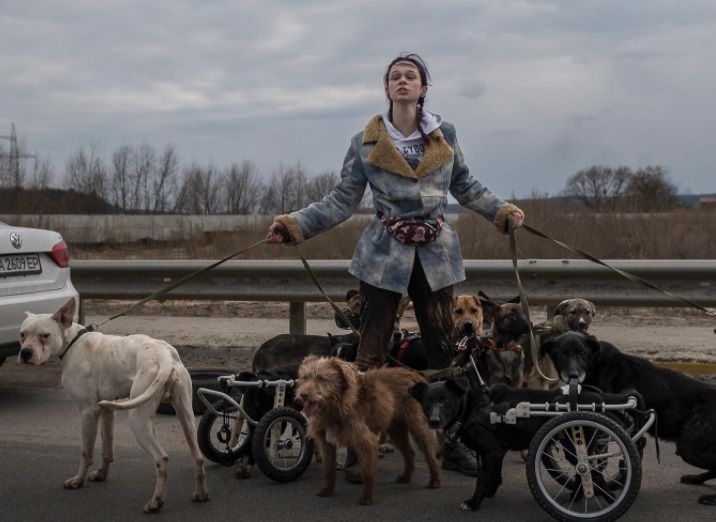
Zoo volunteer Anastasia Tykha. Photo: Christopher Occhicone

